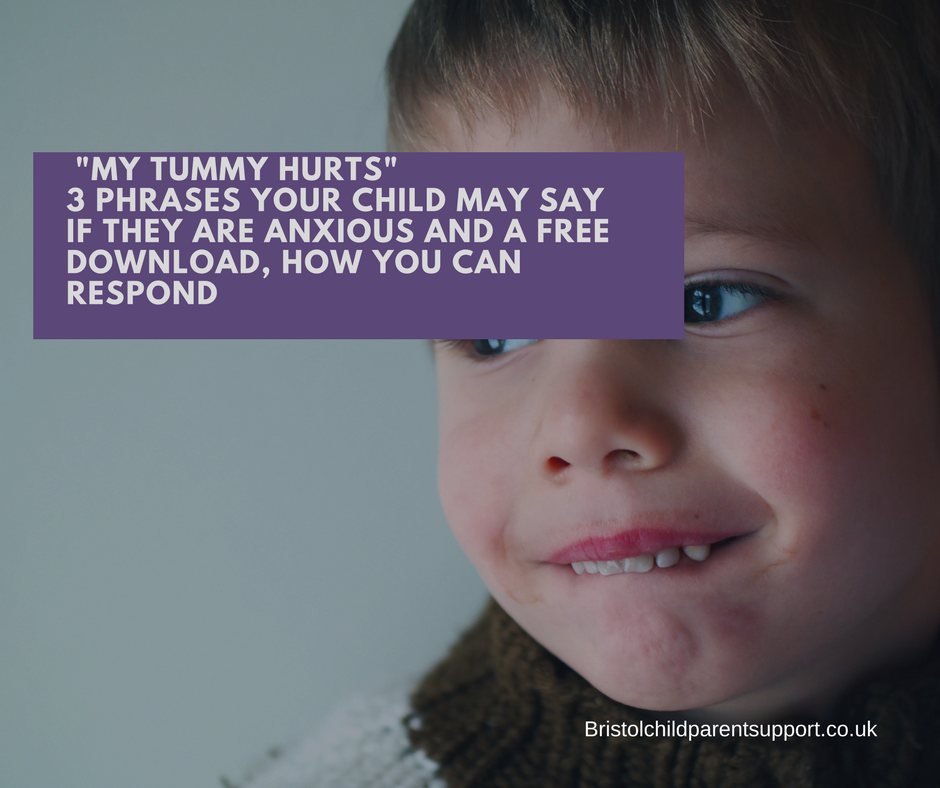Children often can’t tell us they are anxious. This is for many reasons; sometimes they’ve yet to develop the reflective capacity; they are overwhelmed by the anxiety. Or they might not even have learned the right “feeling words” So here are:
3 Phrases children may say if they are Anxious:
1. I don’t want to go to school, can I stay with you?.
Most of us don’t want to go to work sometimes, and it is perfectly normal for your child to feel separation anxiety between the ages of 12-24 months, which can then reappear when they transition to school. This is perfectly normal; try not to be too worried, so to prevent it from escalating, try these simple tips:
- Educate them on what anxiety is and what happens
- Name and label the anxiety; for example, you might say: “I wonder/think you may be anxious, that’s ok lots of children get anxious when they are away from mummy or daddy, but I know you are fine when you get there”.
- Have a simple goodbye routine. Don’t sneak off, and don’t prolong the goodbye. Tell yourself that they will survive without you.
2. My tummy hurts
Our amygdala can trigger in less than 1/10 of a second; this triggers a physical response. Our vagus nerve intimately connects our brains and guts. The threat response can send signals directly from the brain to the heart via the vagus nerve, causing tummy trouble. Anxiety can also influence the gastrointestinal tract to move in ways that cause pain. Tummy pain without an identifiable physical cause is so common that it has a name – functional abdominal pain. The pain is genuine and can be pretty severe.
What can you do:
- Accept that they may have pain and try not to minimise it.
- Again, wonder with them that they are anxious, try to think about what it may be about, and reflect this to them in simple words.
- Please help them learn emotional language, positive self-talk, and talk about feelings at home, yours and theirs.
3. I Can’t Sleep
There is a link between anxiety disorders in later life and sleep dysregulation. Sleep is another transition and a time of separation from you, so it’s not surprising that children can struggle sometimes. The anxious brain can be busy, so make sure your child has a regular bedtime routine. Make sure:
- The hour before bedtime, no screens as these will not only interfere with melatonin, their sleep hormone but may wind them up rather than calm them down.
- Keep lights on red or amber; this again helps the melatonin uptake.
- It’s no longer than 35 minutes; prolonging the moment will only escalate the anxiety.
- Name it and talk about it, problem-solve around it.
- Use my Safe Haven exercise for them to learn ways to regulate.
####Anxiety Handout for Stop The Worry Cycle####
They may use phrases like I want a pee, I’m tired, my legs and arms hurt, and more if you can educate your child on anxiety. Discuss what it means, name and label feelings; I am sure in time, they will be able to “beat the anxiety if you are struggling, seek help.
Always remember that each of you is doing your very best; they are not evil children, and you are not a bad parent. Parenting can be stressful—and it’s hard to feel “zen” when you are constantly frustrated, overwhelmed, or anxious. If you need extra support, join me at my parent workshop for many more ideas on managing emotions. Click here for Let’s Stop the Worry Cycle Workshop and Anger Transformation Workshop. Contact me for a Zoom or telephone consultation, or sign up for my newsletter to be notified of blogs and free downloads. With Love, Catherine.
Related Blogs.
How to Manage Negative Thinking Patterns.
Helping Children with a Phobia.



